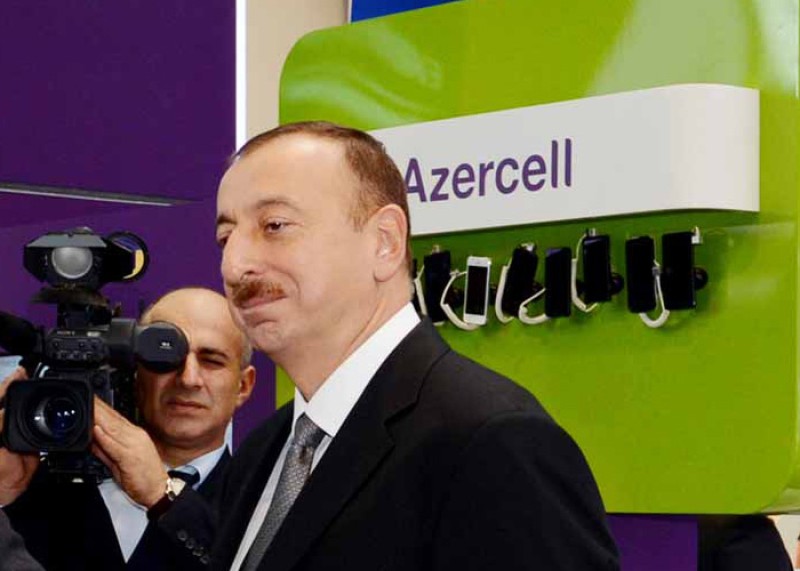Today, those colleagues launch The Khadija Project, a series of hard-hitting stories continuing her work in defiance of her ongoing incarceration. Journalists and volunteers from the United States and Europe joined forces with teams in Turkey and the Caucasus to finish the stories Ismayilova has been prevented from writing.
“Khadija’s illegal detention, like that of nearly 100 other Azerbaijani prisoners of conscience, is proof of the lengths to which the Aliyev family and their friends will go to protect the billions they have looted from Azerbaijan,” said Drew Sullivan, editor of the Organized Crime and Corruption Reporting Project (OCCRP).
In the major investigation released today, OCCRP journalist Miranda Patrucic teamed up with Joachim Dyfvermark of Swedish Television and Ola Westerberg of the Swedish News Agency to show how Swedish-Finnish telecommunications giant TeliaSonera abetted a massive business deal that may have drained as much as US$ 1 billion from Azerbaijan’s treasury.
Where is that money today?
The reporters discovered that it has vanished into a maze of dodgy offshore corporations closely linked to the Aliyev family. The details are to be found in documents unearthed by reporters who spent three months examining hundreds of pages of business records, annual reports and internal documents on the deal.
Lars Hammar, a retired police officer and one of Sweden's most experienced financial crime investigators, told the reporters after reviewing their findings, “It smells of corruption and bribery. No one could have dreamed that figures like this would have been paid or transferred.”
The case may represent the largest bribery in Swedish history, he believes.
The documents show that TeliaSonera, hoping to expand into the highly lucrative telecommunications market in oil-rich Azerbaijan, was coerced into agreeing to a series of actions that worked against TeliaSonera’s own interests but massively benefited corporations and individuals closely linked to the Aliyevs.
The playbook was remarkably similar to one exposed in Uzbekistan in 2012, in which TeliaSonera is accused of paying massive bribes in 2007 to a company covertly linked to Gulnara Karimova, the daughter of the Uzbek president. At least four top TeliaSonera executives were fired after the scandal erupted and Karimova remains under house arrest in Tashkent.
TeliaSonera’s new CEO, Johan Dennelind, was hired to clean up its business practices and told reporters for OCCRP that the Azerbaijani transactions raise a number of questions, including exactly who TeliaSonera’s local partner in Azerbaijan was. He said the company has given all materials to prosecutors to review.
In Azerbaijan, “we have a situation where we do not know the identity of our partner,” Dennelind said, saying it was likely someone close to power. Dennelind called the situation “troublesome.” He said the company has tried for more than 18 months to determine who its local partners are but without success.
When asked directly whether TeliaSonera bribed Aliyev’s regime, Dennelind told OCCRP, “We cannot prove it. But we cannot rule it out.”
Others contributing to the story were Lejla Camdzic (OCCRP), Boris Kartheuser (freelance Switzerland), Sylke Gruhnwald (SRF) Julian Schmidli (SRF), Lovisa Moller (Factwise), Sofia Hultqvist (Factwise), and Durna Safarova (freelance, Azerbaijan), and Tolga Tanis (Hurriyet).


